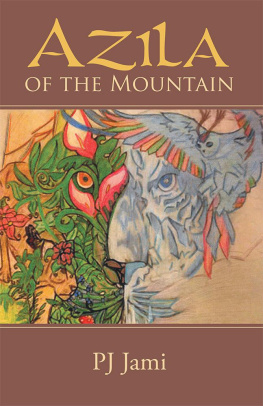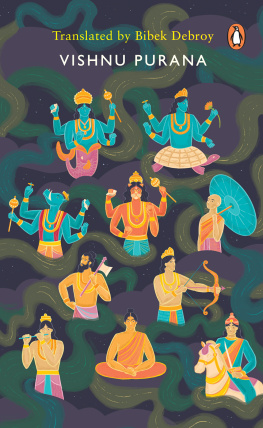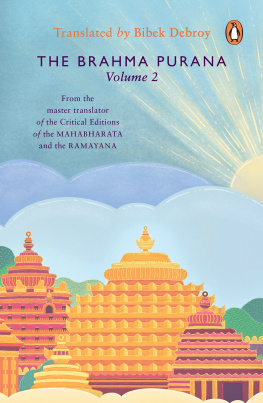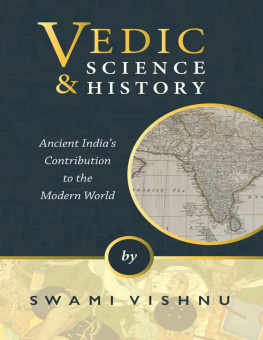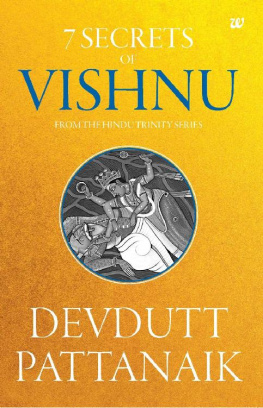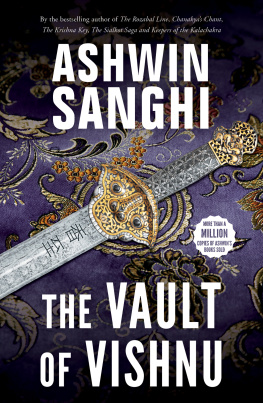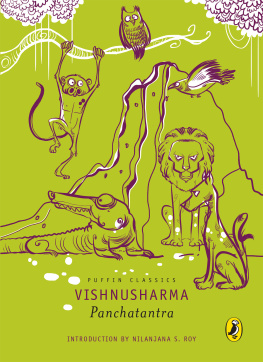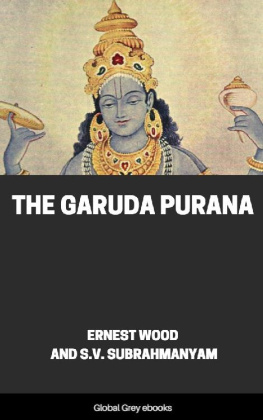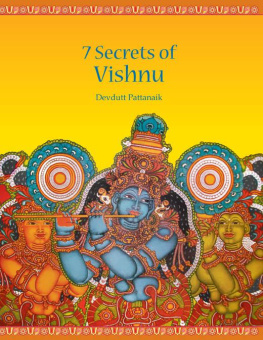Julius Jolly (tr.) - Vishnu Smriti (Institutes of Vishnu)
Here you can read online Julius Jolly (tr.) - Vishnu Smriti (Institutes of Vishnu) full text of the book (entire story) in english for free. Download pdf and epub, get meaning, cover and reviews about this ebook. genre: Science. Description of the work, (preface) as well as reviews are available. Best literature library LitArk.com created for fans of good reading and offers a wide selection of genres:
Romance novel
Science fiction
Adventure
Detective
Science
History
Home and family
Prose
Art
Politics
Computer
Non-fiction
Religion
Business
Children
Humor
Choose a favorite category and find really read worthwhile books. Enjoy immersion in the world of imagination, feel the emotions of the characters or learn something new for yourself, make an fascinating discovery.
- Book:Vishnu Smriti (Institutes of Vishnu)
- Author:
- Genre:
- Rating:5 / 5
- Favourites:Add to favourites
- Your mark:
- 100
- 1
- 2
- 3
- 4
- 5
Vishnu Smriti (Institutes of Vishnu): summary, description and annotation
We offer to read an annotation, description, summary or preface (depends on what the author of the book "Vishnu Smriti (Institutes of Vishnu)" wrote himself). If you haven't found the necessary information about the book — write in the comments, we will try to find it.
Vishnu Smriti (Institutes of Vishnu) — read online for free the complete book (whole text) full work
Below is the text of the book, divided by pages. System saving the place of the last page read, allows you to conveniently read the book "Vishnu Smriti (Institutes of Vishnu)" online for free, without having to search again every time where you left off. Put a bookmark, and you can go to the page where you finished reading at any time.
Font size:
Interval:
Bookmark:
Title PageContentsIntroductionVishnu and the Goddess of the EarthI.The Four CastesII.Duties of a KingIII.Weights and MeasuresIV.Criminal and Civil LawV.Law of DebtVI.WritingsVII.WitnessesVIII.OrdealsIX.X.XI.XII.XIII.XIV.InheritanceXV.XVI.XVII.XVIII.Funeral CeremoniesXIX.XX.Funeral OblationsXXI.ImpurityXXII.XXIII.WomenXXIV.XXV.XXVI.SacramentsXXVII.XXVIII.XXIX.XXX.XXXI.XXXII.CrimesXXXIII.XXXIV.XXXV.XXXVI.XXXVII.XXXVIII.XXXIX.XL.XLI.XLII.HellsXLIII.TransmigrationXLIV.XLV.PenancesXLVI.XLVII.XLVIII.XLIX.L.LI.LII.LIII.LIV.LV.LVI.LVII.Duties of a HouseholderLVIII.LIX.LX.LXI.LXII.LXIII.LXIV.LXV.LXVI.LXVII.LXVIII.LXIX.LXX.Rules for a SnatakaLXXI.Self-restraintLXXII.SraddhasLXXIII.LXXIV.LXXV.LXXVI.LXXVII.LXXVIII.LXXIX.LXXX.LXXXI.LXXXII.LXXXIII.LXXXIV.LXXXV.LXXXVI.Pious GiftsLXXXVII.LXXXVIII.LXXXIX.XC.XCI.XCII.XCIII.The HermitXCIV.XCV.The AsceticXCVI.Meditation on VishnuXCVII.ConclusionXCVIII.XCIX.C.Additions and Corrections
{scanned at sacred-texts.com, March 2002}
INTRODUCTION | ix |
Vishnu and the Goddess of the Earth | |
The Four Castes | |
Duties of a King | |
Weights and Measures | |
Criminal and Civil Law | |
Law of Debt | |
Writings | |
Witnesses | |
Ordeals | |
Inheritance | |
Funeral Ceremonies | |
Funeral Oblations | |
Impurity | |
Women | |
Sacraments | |
Studentship | |
Crimes | |
Hells | |
Transmigration | |
Penances | |
Duties of a Householder | |
Rules for a Snataka | |
Self-restraint | |
Sraddhas | |
Pious Gifts | |
The Hermit | |
The Ascetic | |
Meditation on Vishnu | |
Conclusion | |
General Index | |
Sanskrit Index | |
Additions and Corrections | |
Transliteration of Oriental Alphabets adopted for the Translations of the Sacred Books of the East |
LIST OF THE MORE IMPORTANT ABBREVIATIONS.
Apast.--Apastamba's Dharma-sutra, ed. Bhler.
Asv.--Asvalayana's Grihya-sutra, ed. Stenzler.
Gaut.--Gautama's Dharmasastra, ed. Stenzler.
Gobh.--Gobhila's Grihya-sutra, in the Bibl. Ind.
M.--Manava Dharmasastra, Calcutta edition, with the Commentary of Kulluka.
Nand.--Nandapandita, the commentator of the Vishnu-sutra.
Par.--Paraskara's Grihya-sutra, ed. Stenzler.
Sa n kh.--Sa n khayana's Grihya-sutra, ed. Oldenberg, in the fifteenth volume of the Indische Studien.
Y.--Yagnavalkya's Dharmasastra, ed. Stenzler.
Apast. and Gaut. refer also to Dr. Bhler's translation of these two works in the second volume of the Sacred Books of the East.
THE Vishnu-smriti or Vaishnava Dharmasastra or Vishnu-sutra is in the main a collection of ancient aphorisms on the sacred laws of India, and as such it ranks with the other ancient works of this class which have come down to our time[1]. It may be styled a Dharma-sutra, though this ancient title of the Sutra works on law has been preserved in the MSS. of those Smritis only, which have been handed down, like the Dharma-sutras of Apastamba, Baudhayana, and Hiranyakesin, as parts of the respective Kalpa-sutras, to which they belong. The size of the Vishnu-sutra, and the great variety of the subjects treated in it, would suffice to entitle it to a conspicuous place among the five or six existing Dharma-sutras; but it possesses a peculiar claim to interest, which is founded on its close connection with one of the oldest Vedic schools, the Kathas, on the one hand, and with the famous code of Manu and some other ancient law-codes, on the other hand. To discuss these two principal points, and some minor points connected with them, as fully as the limits of an introduction admit of, will be the more necessary, because such a discussion can afford the only safe basis for a conjecture not altogether unsupported regarding the time and place of the original composition of this work, and may even tend to throw some new light on the vexed question as to the origin of the code of Manu. Further on I shall have to speak of the numerous interpolations traceable in the Vishnu-sutra, and a few remarks regarding the materials
[1. This was first pointed out by Professor Max Mller, History of Ancient Sanskrit Literature, p. 134. His results were confirmed and expanded by the subsequent researches of Dr. Bhler, Introduction to Bombay Digest, I, p. xxii; Indian Antiquary, V, p. 30; Kasmir Report, p. 36.]
used for this translation, and the principles of interpretation that have been followed in it, may be fitly reserved for the last.
There is no surer way for ascertaining the particular Vedic school by which an ancient Sanskrit law-book of unknown or uncertain origin was composed, than by examining the quotations from, and analogies with, Vedic works which it contains. Thug the Gautama Dharmasastra might have originated in any one among the divers Gautama Karanas with which Indian tradition acquaints us. But the comparatively numerous passages which its author has borrowed from the Samhita and from one Brahmana of the Sama-veda prove that it must belong to one of those Gautama Karanas who studied the Sama-veda[1]. Regarding the code of Yagnavalkya we learn from tradition that a Vedic teacher of that name was the reputed author of the White Yagur-veda. But this coincidence might be looked upon as casual, if the Yagnavalkya-smriti did not contain a number of Mantras from that Vedic Samhita, and a number of very striking analogies, in the section on funeral ceremonies particularly, with the Grihya-sutra of the Vagasaneyins, the Katiya Grihya-sutra of Paraskara[2]. In the case of the Vishnu-sutra an enquiry of this kind is specially called for, because tradition leaves us entirely in the dark as to its real author. The fiction that the laws promulgated in Chapters II-XCVII were communicated by the god Vishnu to the goddess of the earth, is of course utterly worthless for historical purposes; and all that it can be made to show is that those parts of this work in which it is started or kept up cannot rival the laws themselves in antiquity.
Now as regards, first, the Vedic Mantras and Pratikas (beginnings of Mantras) quoted in this work, it is necessary to leave aside, as being of no moment for the present purpose, 1. very well-known Mantras, or, speaking more
[1. See Bhler, Introduction to Gautama (Vol. II of the Sacred Books of the East), pp. xlv-xlviii.
Next pageFont size:
Interval:
Bookmark:
Similar books «Vishnu Smriti (Institutes of Vishnu)»
Look at similar books to Vishnu Smriti (Institutes of Vishnu). We have selected literature similar in name and meaning in the hope of providing readers with more options to find new, interesting, not yet read works.
Discussion, reviews of the book Vishnu Smriti (Institutes of Vishnu) and just readers' own opinions. Leave your comments, write what you think about the work, its meaning or the main characters. Specify what exactly you liked and what you didn't like, and why you think so.



